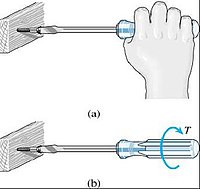
Photo from wikipedia
OBJECTIVES This study explored the relationship between Internet use and informal caregivers' characteristics. METHODS We used the Chilean Sociodemographic Characterization Survey. A total of 86,172 informal caregivers were identified. We… Click to show full abstract
OBJECTIVES This study explored the relationship between Internet use and informal caregivers' characteristics. METHODS We used the Chilean Sociodemographic Characterization Survey. A total of 86,172 informal caregivers were identified. We conducted a weighted χ2 to test differences in 10 types of Internet use and weighted logistic regressions with caregivers' characteristics as predictors of Internet use. RESULTS Younger caregivers engaged in more types of use than the older ones. Education level was positively associated with all types of use, such as searching for information (OR = 3.52, CI 95% [2.34, 5.29]). Age was negatively related to Internet use. Women used the Internet more to communicate via social networks. Being single reduced the likelihood of performing certain types of use, such as information seeking. The number of people living in households has increased entertainment. CONCLUSIONS Older caregivers with lower education levels are at greater risk of digital exclusion. The same occurred in some types of use with single caregivers, where fewer people lived in the household. CLINICAL IMPLICATIONS The Internet can be a tool for coping with caregiving tasks and their negative consequences. Interventions should consider these characteristics when promoting online tools and performing online interventions to reach the broadest possible audience.
Journal Title: Clinical gerontologist
Year Published: 2023
Link to full text (if available)
Share on Social Media: Sign Up to like & get
recommendations!